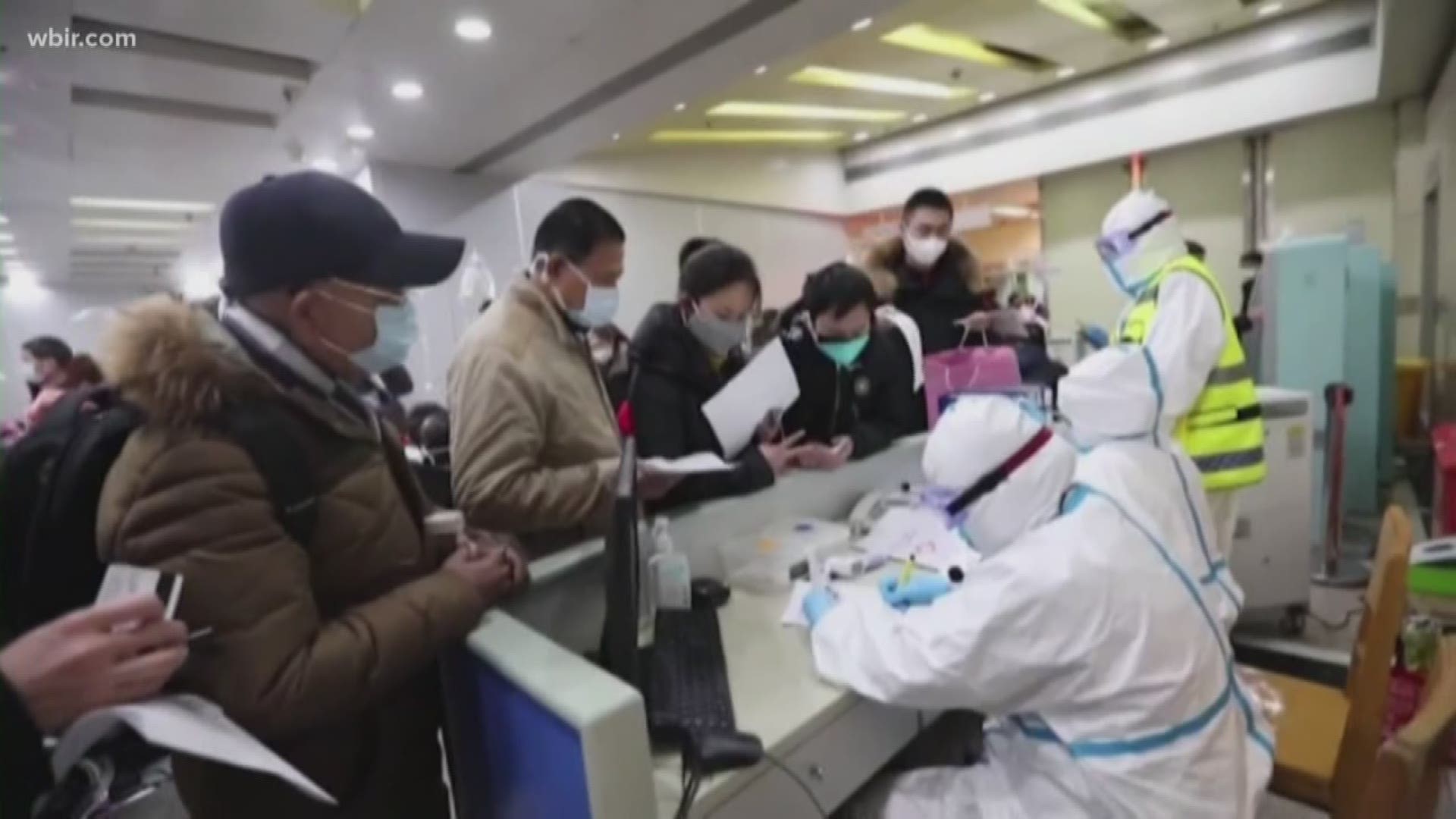KNOX COUNTY, Tenn. — There are more than 80,000 cases of the new coronavirus, also known as COVID-19, around the world.
Less than 2,500 of those cases exist outside China.
Tennessee remains free of infection at the moment, but on Tuesday health officials called the spread of the virus to the United States "inevitable."
Hong Kong, Iran, Italy and South Korea are just a few new locations that have seen cases in the past few days. There are cases now in 34 countries.
COVID-19 comes with a lot of unknowns. Because of that, the World Health Organization and Centers for Disease Control are urging everyone to be prepared.
Here in East Tennessee, Martha Buchanan, Director of the Knox County Health Department, said pandemic plans continue to change as they learn more about the virus and receive constant guidance from the CDC and State Health Department.
"We asked all our area hospitals to do the same. They all have pandemic plans," said Buchanan.
She said the biggest risk for Tennesseans is traveling to spots with outbreaks.
Locally, travel advisories are affecting UT study abroad trips and Oak Ridge National Laboratory employees who travel. There are travel advisories to China, Hong Kong, South Korea and Japan.
But does this make the coronavirus a pandemic? Health leaders said it has potential but from their assessment we're not there yet.
An epidemic is a large outbreak, spreading around an epicenter among a population or particular region. A pandemic involves a worldwide, ongoing, person-to-person transmission of the virus just about everywhere.
"We don't have that yet. We have pockets of ongoing transmission," said Buchanan.
The primary epidemic remains in China.
Aside from travel, officials point to the same safety tips from the 2009 H1N1 "swine flu" pandemic, meaning wash your hands, stay home if you're sick and cover your cough.
Officials continue to warn we are most at risk of the flu.

